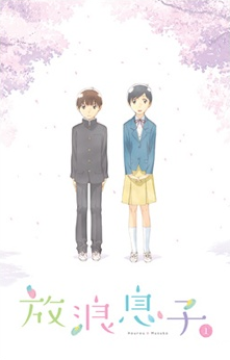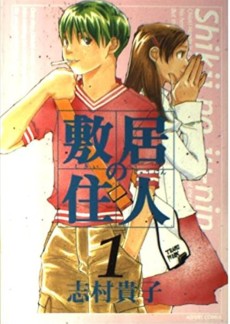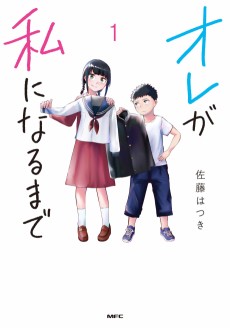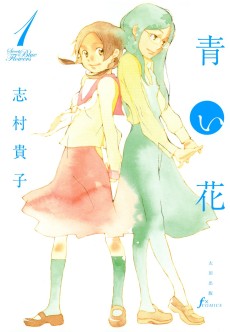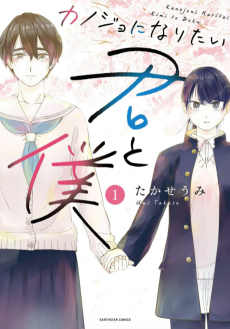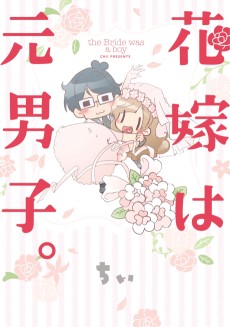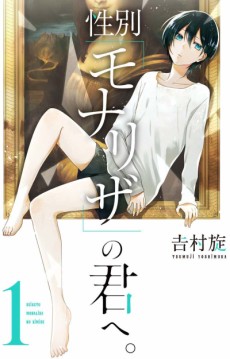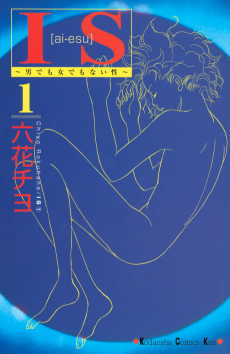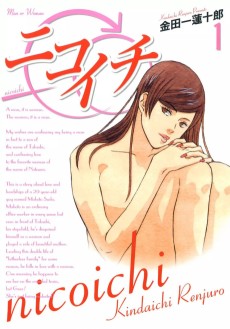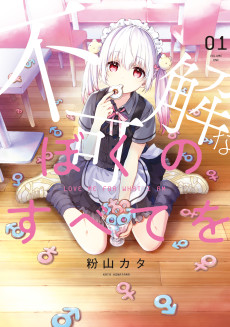HOUROU MUSUKO
STATUS
COMPLETE
VOLUMES
15
RELEASE
July 12, 2013
CHAPTERS
123
DESCRIPTION
Fifth grade friends Shuichi Nitori and Yoshino Takatsuki have happy homes, loving families, and are well-liked by their classmates. But they share a secret that further complicates a time of life that is awkward for anyone: Shuichi is a transgender girl, and Yoshino is transgender boy.
(Source: Fantagraphics)
CAST
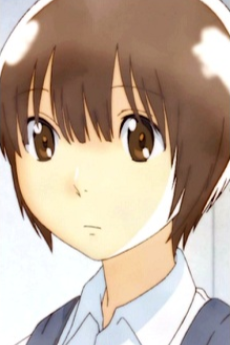
Shuuichi Nitori
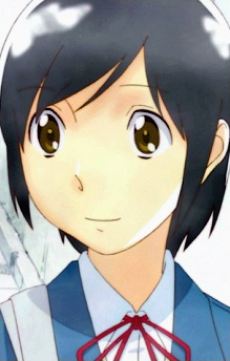
Yoshino Takatsuki
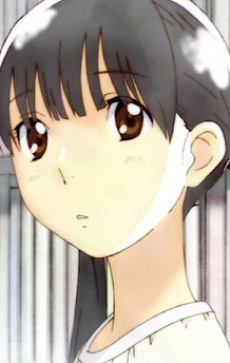
Saori Chiba
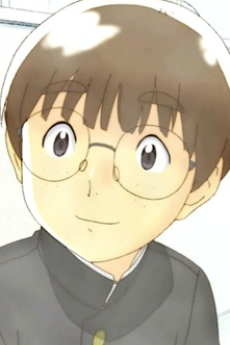
Makoto Ariga
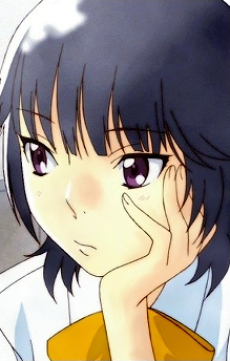
Anna Suehiro
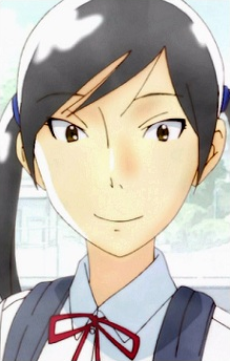
Chizuru Sarashina
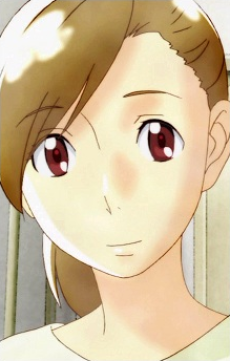
Yuki
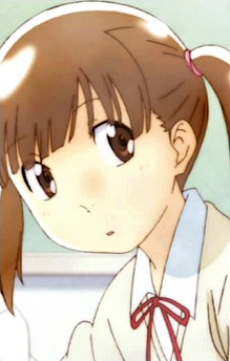
Kanako Sasa
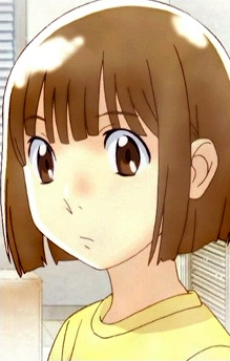
Maho Nitori
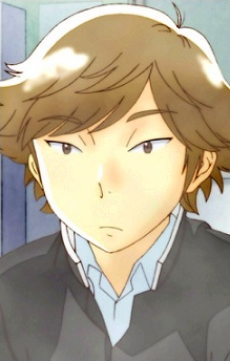
Shinpei Doi
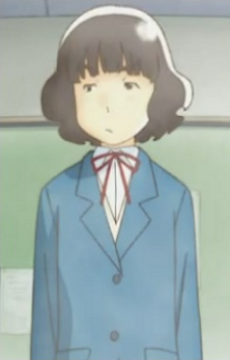
Momoko Shirai
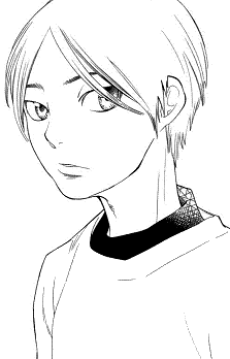
Riku Seya
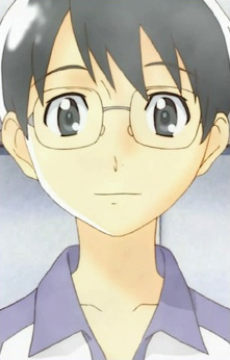
Fumiya Ninomiya
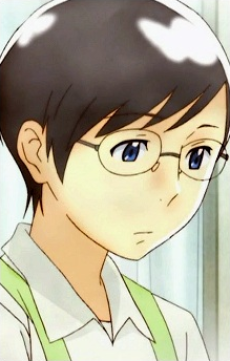
Satomi Nitori
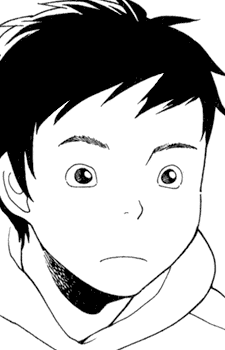
Takanori Oka
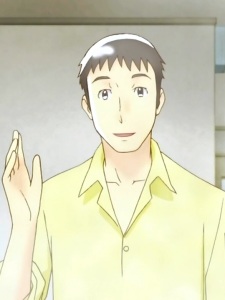
Shiina
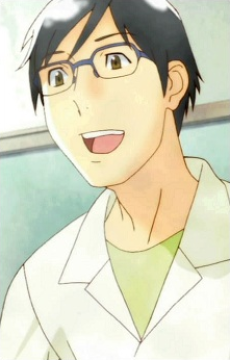
Manabu Saisho
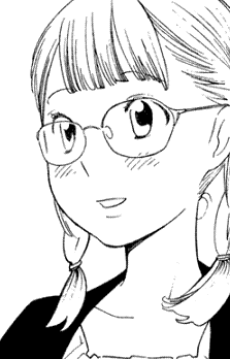
Maiko
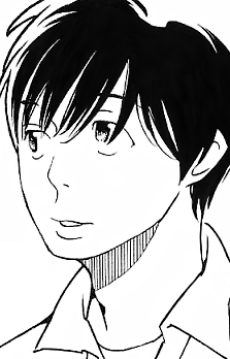
Kentarou Kaneda
CHAPTERS
RELATED TO HOUROU MUSUKO
REVIEWS

llorando
100/100It isn't so much about depicting non-conformity on the usual on-your-nose way, but a story about growing upContinue on AniListI have a soft spot for Shimura Takako's idiosyncrasies as a writer. She tells mundane stories about mundane people - even if the subject matter is something fantastical, like "Sayonara, Otokonoko", it's still told in a way that resembles everyday life - but the way she does it is not very conventional in itself. The story is always jumping from present to past and then to present again, from a real situation to a imaginary one, from reality to dream. Sometimes a conversation is being held by two characters and in the next panel - without warning or proper closure - different characters are now the ones talking about the same thing. The flow of time always feels off: days, weeks and sometimes months can pass by from one chapter to the other with the only indicator of it being few, very easy to miss, hints. She seems to really like this little tricks and abuses it, sometimes to the point of incomprehensibility, that's true, but it's generally easy to follow. Hourou Musuko is the work where her techniques shines the brightest.
The reason for this became quite apparent for me this time around: it's because of it's length and the nature of the story itself.
HM's major selling point, sexuality and gender non-conformity, isn't explored in a big, dramatic fashion, but rather in a very grounded way. It's a important thing to understand about the story: it isn't so much about depicting non-conformity on the usual on-your-nose way, instead of being concerned with passing down a message it's more about following Shuuichi and Takatsuki and observing how they'll deal with this feeling of not belonging while slowly, and I mean slowly, growing up. This is a character piece before being a thematic driven story. Making that distinction is vital to knowing what you're getting yourself at.
The first 2/3 of the series are spent introducting and getting us to know the characters which will form Shuu's group and their (I'll be using they to refer to Shuuichi, see below) family. We follow these kids living their every day life, slowly growing up. New characters are introduced, others are forgotten, others are re-introduced with the passage of time. Different combinations between the characters are explored; conflicts also show up, but it never feels bigger than it really is (think about how Shuu being bullied after that event is portrayed).
However, the point where the series full strenght resides is, for me, the last third, which ironically is the most criticized section of the manga. While before there was a feeling of steady progression - for Shimura's standart, that is - and familiarity with the cast and their environment, now, starting with the last year of middle school, they have to face separation. For Shuuichi, that also means that their body will start developing into a male's one. The ground on which everything was built upon is now no more.
That separation isn't only there as a stone cold fact, but it's felt organically through storytelling. What I mean by this is that the way that Shimura was handling the whole thing until that point starts to change. The progression of time, which was never very clear, becomes even more unsteadier. Shimura also takes an interesting decision: instead of parting from the other kids and shifting our POV completely to Shuu's high school life, Shimura's allows us to see, even more than before, tiny pices of each character's life.
The usual criticism thrown at HM's endgame - actually in it's entirety, but especially the last part - is that the focus becomes so lacking that it feels like that it is a story about nothing at all, but said argument couldn't be further from the truth. The beauty of the whole thing is that Shimura backs away from one character and let us witness something much bigger than just that single perspective. By seeing a bit of each character, little by little, without us noticing, a much bigger picture is formed right in front of us. It's by seeing how them - not only Shuu's group, but their mother, father, sister, sister's boyfriend, Yuuki, Shii, the crossdresser they met while working as a waitress, in short, everyone, really, everyone - lives their life that a larger than life feeling is born. Shuuichi's still is the central character, but what we're shown is the network that sorround they, even if they're not aware of it.
What makes it so poignant is the fact that everything is really mundane: no major conflicts, no high stakes, so there's no chance for a happily ever after ending. It's like that quiet, sad feeling you get sometimes without any specific reason. This feeling is born from the awareness of the passage of time. The constant shifting of focus and the ambiguous nature of time in HM creates a blurring feeling that dominates it's pages. I'm talking about Shuu suddenly thinking about their friends from their first school and how they're a distant memory and then recalling their girl friends' faces, or when Shuu and Sasa meets and they just chat a little, or when Takatsuki sees Shuu and all they can do is exchange fast greetings, or when Shuu is thinking back when they used to be confident about wearing girl's clothes, but the image we're actually seeing is they shaving their now manly face.
Time is passing, we're aware of it and from that awareness a bittersweet feeling is born. We see the characters changing, growing up. Some of them are still together, some grew apart, some are making new bonds, and none of this really has any big significance or serves for advancing the plot, because there's barely one to begin with. Time will continue to pass, some things will be forgotten, others will be remembered, and nothing will ever be like it used to, but there's no real tragedy about this fact; it's a universal truth that affects not only these fictional characters, but also us, real people.
Spoilers bellow
One wanted to be a boy. One wanted to be a girl. One stopped wanting to be a boy. That's all there is it to it
This cathartic moment is simultaneously Takatsuki and Shuu's much needed resolution and the best way to end and summarise what everything is about. It's where everything, in such a loose story, comes full circle. Because that's really all there is to it. That's the story of the life of two kids (and some others) who were once closely bonded but aren't anymore. Takatsuki's crying while thanking Shuu for holding her hand is just that. She knows that they aren't like they used to be, that they chose different paths and, because of that, the very thing that made them once kindred spirits is now the one that separates them, and she feels sorry and sad for it. But Shuu will keep walking, for it's already decided: she's a girl.
Shimura's choices as a storyteller that I mentioned earlier is precisely what makes the ending such a heavy blow. The climatic interaction between our two main protagonists has already happened in the past, but we, as readers, only get to know how it really ended on the last chapter, where, in a context where Shuu is getting ready to leave home and move to the beginning of their adulthood, the flashback from Takatsuki's crying face is revealed, and it's that single page that takes our emotional awareness to it's climax.
What happens afterwards - just a few pages, that is - is such a small, non-epic, almost matter of factly way of ending such a huge story that it has precisely the reverse effect. It feels huge, real and important
I personally think that the story plays out much better if you read Shuu not as a representative of what a transsexual woman should or should not be, but as a person who wants to live their life as they please. You can call them a trans woman or a man with a clothes fetish, but this doesn't diminishes Hourou Musuko's power.
This is really, at heart, a coming of age story, even though gender and sexuality plays a big part in it, this still is a story - Shuu's story, but also about the ones around them - about growing up and everything that comes with it.
Someone pointed out perfectly in the discussion thread: Yuki is not the transexual. Yuki is Yuki. And this doesn't mean that being transgender is unimportant to who Yuki is - this would be an exetremly naive assumption - but rather that her identity, a transgender woman, doesn't tell us everything there is to say about her. She, as a person, doesn't end in the transgender label. The same goes for the others: Mako is Mako. Shuu is Shuu. Chiba is Chiba. Takatsuki is Takatsuki. That's the story of their lives and how they're interconnected. To achieve this is really so exemplary and just proves how great and worth of it's length this series is.

holographer
83/100A beautiful tale that traverses the journey of an adolescent truly becoming comfortable of themselves in the world.Continue on AniListWandering Son is a work by Takako Shimura and features many similar aspects to the rest of her manga, a protagonist that is unsure of themselves , messy romance dynamics, and a adolescent cast. Wandering Son features one caveat that differs from Shimura's other works, with the inclusion of the main protagonist being a trans-woman. In this story we are introduced to male Nitori Shuuichi a fifth grader who has feminine features and dreams of being a girl. Wandering Son chronicles Shuuichi's life and transition throughout their time from fifth grade to becoming a adult and graduating high school.
Wandering Son goes through Shuuichi's youth in a slow pace, detailing the many actions and events that lead to Shuuichi being able to be comfortable with the fact they like dressing and being a girl. In the beginning of the story Shuuichi is uncomfortable being wanting to be girly and be more feminine unlike Yoshino who is a girl wanting to transition to a boy and presents herself masculine. In this manga Shuuichi takes steps all throughout their youth to present themselves to the world the way they want like secretly cross dressing with Yoshino and doing plays dressed as a girl. Many obstacles Shuuichi faces though is harassment from other students, and being comfortable expressing himself without worry that other people may hate them. At some points this does feel a little repetitive as it seems like each cross-dressing play they do at Shuuichi's school repeats the same dilemma making it feel stale at points. On the other hand the first impact and harassment towards Shuuichi for wanting to be a girl, hits hard and deep and moments like Doi exposing his thoughts feel terrible to read. The conflict of ridicule in school towards Shuuichi is mostly contained in the first half of the book and seems more tame than real life. Shuuichi's friends are their for them and support Shuuichi thoroughly while the is conflict the manga doesn't take it to the extreme that it could have. I appreciated the approach, many other authors would choose to have the majority of a book on a life of a trans character being very negative and even if some points are very rose-tinted I didn't mind most of the times it took this approach. One time I did mind it is when it comes to Shuuichi's parents and the fact they are sort of absent throughout the manga letting Shuuichi do whatever with whoever. In addition, when Shuuichi comes out to them there is barely any drama or conflict and they barely even talk to them about it before accepting it a little too unrealistic in my eyes.
This manga instead of choosing to mainly focus on the negative aspects of being transgender, spends the majority of its time on Shuuichi developing as a person dating and having romantic feelings, facing the problem of puberty catching up to their feminine appearance and figuring out who they want to be in life. In the manga there is romantic feelings from character to character and at points it makes me lose my head a little, generally I did like complicated feelings in this manga. Shuuichi's feelings towards Yoshino are indicative of young love and falling for the people you are closest to and Shuuichi's eventual romance to Anna is sweet and shows a really nice positive relationship with a transgender and cis person. Chiba feelings towards Shuuichi are pure and unselfish and their rejection towards her shapes her to become the fantastic character she is. Chiba is throughout my favorite character in the manga unable to fit in with boys and girls she chooses to hang with those that have trouble identifying with either. She may seem gloomy and arrogant at point the actions she takes like her unrelenting supporting for Shuuichi to be themselves and cross dress makes her a wonderful character. Shuuichi while I do like them as a character do not find them as appealing of a character as Chiba and that is one point I am hung up on when trying to give this manga higher praise. Shuuichi and Yoshino are who we mainly follow in the manga and while they are not weak characters sometimes I can find them a bit boring. At one point in the manga Doi makes this point towards Shuuichi that their only real hobby is cross dressing. Eventually Shuuichi becomes a more fleshed out character in the end but the middle part of the manga lags and can feel sluggish at times because their character at that point is a little dull. The main positive aspects that shine in this book are the challenges that Shuuichi faces and how that shape them and creates a more interesting character.
The ending of this manga is beautiful in my eyes and procures it from being just a simple good story. We finally see Shuuichi in a good state where their life is no longer tormented by the daily problems of being transgender they have a girlfriend who accepts them, a normal school life, passion for writing , and a reality that seemed so far away at one point in their life. It really is a bittersweet moment as you remember all the obstacles and challenges they had to go through to get there and it leaves you with a fuzzy feeling. Yoshino's part in realizing that she didn't want to become transgender also adds to the satisfactory ending. Yoshino finds out who she really is and while she has a hard time admitting it, Shuuichi accepts whatever choices she makes and it really shows the bond these two have as friends. I feel like adding this makes it a point that it's fine to question and wonder and that figuring out who you are can be confusing and it's okay to make missteps in that. I'm rating this an low 8.
SIMILAR MANGAS YOU MAY LIKE
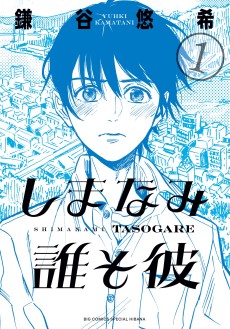 MANGA DramaShimanami Tasogare
MANGA DramaShimanami Tasogare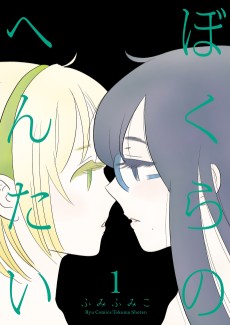 MANGA DramaBokura no Hentai
MANGA DramaBokura no Hentai MANGA DramaAo no Flag
MANGA DramaAo no Flag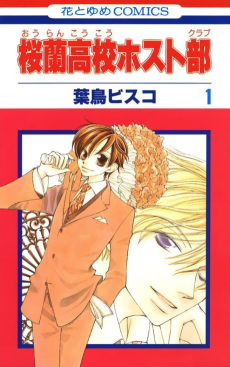 MANGA ComedyOuran Koukou Host Club
MANGA ComedyOuran Koukou Host Club
SCORE
- (3.95/5)
MORE INFO
Ended inJuly 12, 2013
Favorited by 441 Users

